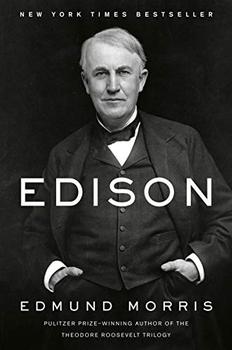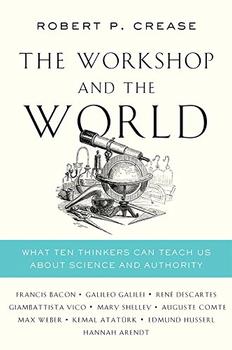Summary | Excerpt | Reviews | Beyond the book | Read-Alikes | Genres & Themes | Author Bio

How Precision Engineers Created the Modern World
by Simon WinchesterWe seek precision in our lives every day. We want to drive from home to work and work to home safely in a reliable car. During a brief stop at the grocery store, we want to find whatever we're looking for, so we don't have to spend more time than necessary shopping. We want the DVR to record what we want to watch so we can start watching when we want and fast-forward through the commercials. All of these require precision.
Simon Winchester knows this, and shares his love and knowledge of all things precise in The Perfectionists. He is especially interested in the precise engineering of GPS, computer chips, car assembly lines, modern-day jet engines, lenses, and even the Hubble Space Telescope. It all began with John Wilkinson (b. 1728), known as the father of precision engineering.
"Iron Mad" Wilkinson was a scion of the iron trade. He came by it naturally - his father was an ironworker and inventor. Wilkinson became consumed by the process and dedicated himself to learning the trade. Eventually he invented a way to manufacture iron cannons that he patented, and in 1774 it became a heralded technique: casting an iron cannon from a solid cylinder of iron rather than a hollow one, which allowed iron to come out of furnaces without air bubbles or "honeycomb problems," as they were called.
History marches on from there and Winchester is fascinated by all of it. Buoyed by his family's own experiences in precision engineering – in the waning years of his father's impressive career he made small motors designed "for the guidance systems of torpedoes" – Winchester deftly profiles such engineering luminaries as Eli Whitney, inventor of the cotton gin; Charles Rolls and Henry Royce, founders of the Rolls-Royce car manufacturing firm; Henry Ford and the trial-and-error of his revolutionary assembly line; and Frank Whittle, who invented the first jet engine. And that's not even properly touching on the incredible process of making computer chips that have become smaller and smaller over the decades.
Besides these kinds of profiles, Winchester displays a practically superhuman range of technical knowledge. There's the sense that he's something of a perfectionist himself, not leaving any piece of information to chance, most likely double and triple-checking it. It's why the extensive computer chip-making process is the best section of the book. Some of the technical information is daunting, particularly when technology becomes more advanced than just interchangeable parts for guns, but Winchester keeps us with him. He understands that those who read The Perfectionists might not have as wide a grasp of the material and organizes his chapters into clear steps that (sometimes, admittedly, after a second read) make sense.
The only thing that becomes tiresome is a tic in Winchester's writing - he repeatedly reminds the reader that, while most of the inventions have been improved on in later years, they were revolutionary in their own time. For example, in a footnote regarding a metal-milling machine, he states, "Improvements made a long while ago can seem mundane and trivial with the benefit of contemporary sophistication but were critical in the evolution of precision engineering." If he had stated that only once it would have been fine. From today's vantage point we do have the benefit of hindsight. But he harps on this idea a few more times, at one point saying that "At the distance of eighty years, it is scarcely possible to appreciate the revolutionary novelty of this idea," as if it's not enough to just let history be history and simply show how it was done back then, trusting us to recognize that we are reading this in the present day and have made gains beyond it.
However, that doesn't detract from the sheer breadth of what Winchester achieves here. This is compelling science that never flags; it's a tonic for those who wish for a temporary reprieve from the chaos of daily life. It is a stunning display of those who sought to harness the forces around them to create products and technologies that could only have been fashioned with a keen mind, a steady hand, and the drive to produce precise results over and over again. The Perfectionists is precisely an extraordinary read.
![]() This review was originally published in The BookBrowse Review in July 2018, and has been updated for the
May 2019 edition.
Click here to go to this issue.
This review was originally published in The BookBrowse Review in July 2018, and has been updated for the
May 2019 edition.
Click here to go to this issue.

If you liked The Perfectionists, try these:

by Edmund Morris
Published 2020
From Pulitzer Prize-winning author Edmund Morris comes a revelatory new biography of Thomas Alva Edison, the most prolific genius in American history.

by Robert P. Crease
Published 2019
A fascinating look at key thinkers throughout history who have shaped public perception of science and the role of authority.
Your guide toexceptional books
BookBrowse seeks out and recommends the best in contemporary fiction and nonfiction—books that not only engage and entertain but also deepen our understanding of ourselves and the world around us.